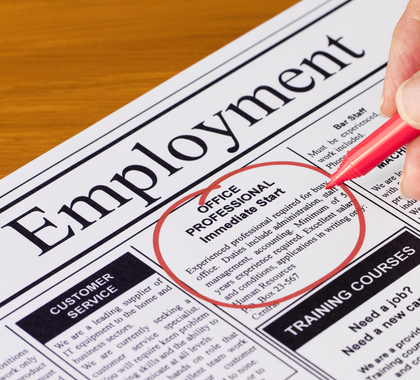Pennsylvania lawmakers are considering changes to the Commonwealth’s policies on occupational licensing—which currently forbid ex-offenders from obtaining certain licenses—to prevent boards and commissions from automatically denying licenses based on criminal histories.
The Keystone State joins a growing number of jurisdictions reforming their criminal justice systems to reduce recidivism and make them fairer. Reform of state regulations that erect barriers to employment is an important part of this effort.
Occupations Highly Regulated
An estimated one in three American adults have a criminal record. In Pennsylvania, approximately 4 to 5 percent of the state’s adult residents had a felony conviction as of 2010. Access to steady employment is necessary to reduce recidivism, but Pennsylvania, like many states, has made it exceedingly difficult for ex-felons to reenter the workforce.
One in five professions in Pennsylvania requires an occupational license. In the Commonwealth, “29 professional boards and commissions regulate 255 licensure types,” amounting to more than one million licensees, according to a review ordered by Gov. Tom Wolf. Of these state regulatory bodies, “13 of 29 boards have provisions … that impose a mandatory 10-year licensure ban for persons who have been convicted of a felony under Pennsylvania’s Controlled Substance, Drug, Device and Cosmetic Act,” the review states.
S.B. 637, a bipartisan bill introduced by Sens. John DiSanto (R-Dauphin) and Judy Schwank (D-Berks), would reform Pennsylvania’s occupational laws by barring boards and commissions from automatically denying licenses to those with criminal records.
The legislation would also require boards and commissions to adopt consistent, universal standards and would bar the use of “moral character to make determinations of whether to grant or renew, deny, suspend, revoke or otherwise discipline a license, certificate, registration or permit.” In addition, ex-offenders will have licenses withheld only if their criminal “convictions are directly related to said occupation after individualized reviews.”
“On average, each state has 56 occupational licensing and 43 business licensing laws that ban applications from felony convictions,” states a report from the Alliance for a Just Society, commissioned by Wolf. The report found that, in comparison to other states in the region, “Pennsylvania is an outlier in applying an automatic criminal history licensure ban. … [T]he majority only authorize consideration of criminal history under certain circumstances, such as where the crime was related to the occupation being licensed.”
Reform Bandwagon
Like Pennsylvania, many states are enacting reforms to their occupational licensing programs. Delaware and Indiana recently reduced conviction barriers in their occupational licensing laws, and Michigan lawmakers are considering legislation that would “block licensing agencies from denying a license for past criminal offense, so long as it is not directly related to the field of work a license applicant is attempting to enter.”
Blanket bans on the issuance of licenses for those with criminal convictions unnecessarily single out ex-offenders and make it more difficult for these people to find work, leading to increased rates of recidivism. Scholars have found a direct correlation between occupational licensing burdens and recidivism.
A 2016 Policy Report from the Center for the Study of Economic Liberty at Arizona State University found “between 1997 and 2007 the states with the highest occupational licensing burdens saw an average increase in the three-year, new-crime recidivism rate of over 9%.” States with the lowest regulatory burdens “saw an average decline … of nearly 2.5%.”
Gainful employment is key in reducing recidivism. The Manhattan Institute notes ex-offenders who quickly found employment upon their release were 20 percent less likely to return to prison. A “5-year follow-up study of released offenders” in Indiana found “post-release employment was an effective buffer for reducing recidivism among ex-offenders.”
Calls for More Reforms
While characterizing reducing barriers for ex-offenders is a good start, lawmakers in Pennsylvania should further reform their burdensome occupational licensing laws, the legal-advocacy group Institute for Justice argues. Although “Pennsylvania’s licensing laws for lower-income occupations are some of the least burdensome in the nation,” the Commonwealth “frequently licenses occupations that are unlicensed by other states,” including auctioneers, taxidermists, and upholsterers, the organization stated in a 2017 study.
The regulations imposed on certain occupations are unnecessarily burdensome, given the risks they present to the public, the study states. This is notable when examining the educational requirements for barbers and cosmetologists, compared to those for emergency medical professionals.
In Pennsylvania, individuals seeking barber and cosmetology licenses must undergo a “training period of at least one thousand two hundred fifty (1250) hours and not less than nine months” under instruction of a licensed barber and/or cosmetologist, state law says.
Emergency medical personnel require significantly fewer training hours. Emergency medical responders must complete 48 to 52 hours of education; emergency medical technicians (EMT) must complete only 150 to 200 hours; and advanced EMTs must complete 150 to 250 hours of training. Paramedics are required to have at least 1,000 to 1,200 hours of education, or 50 hours fewer than what is required of a barber or cosmetologist.
Lindsey Stroud ([email protected]) is a state government relations manager at The Heartland Institute.
Internet Info
“Review of State Professional and Occupational Licensure Board Requirements and Processes,” Pennsylvania Department of State, June 11, 2018: https://heartland.org/publications-resources/publications/review-of-state-professional-and-occupational-licensure-board-requirements-and-processes





